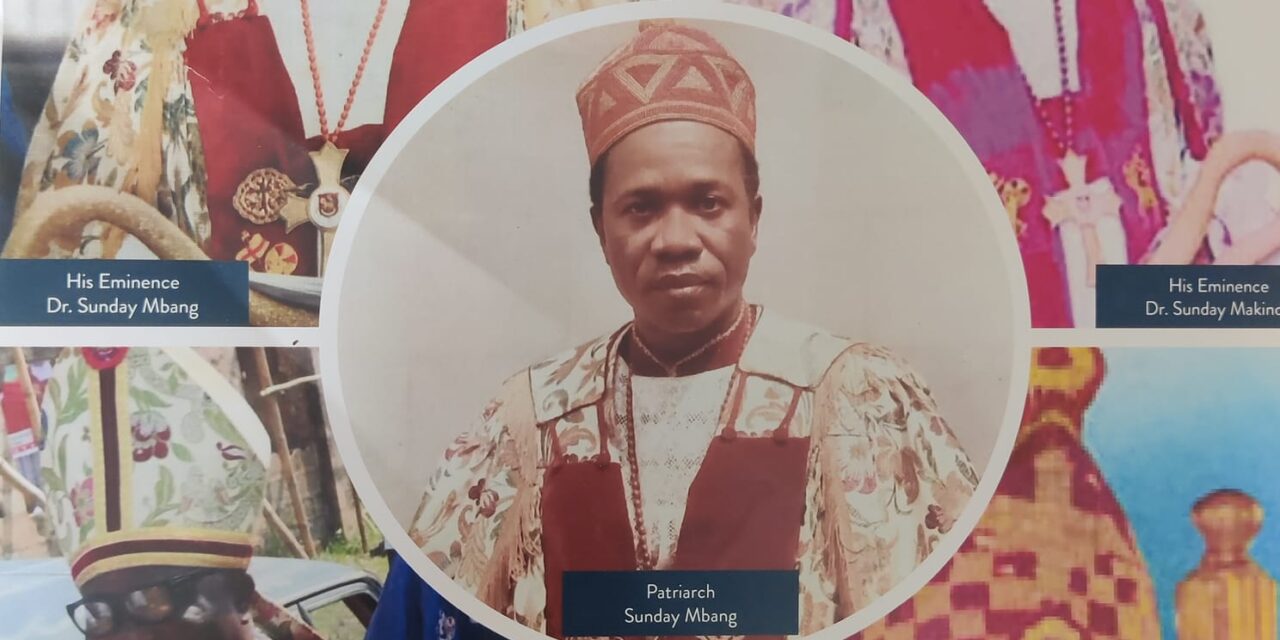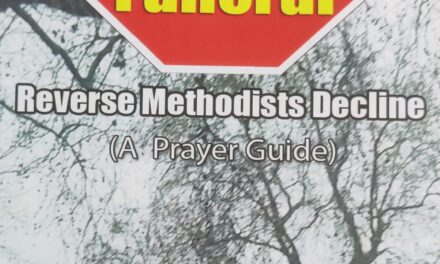Indigenised to decolonise, the Nigerian Methodism at 180 is a call to personal and corporate renewal which is Bible-based and prayer-focused. Indigenised to decolonise, the Nigerian Methodism at 180 and 60 years of autonomy is about celebrating the heritage of Scriptural holiness, the Authority of Scripture, centrality of the Cross, field preaching and other accompanying missional expressions of the Gospel of Jesus Christ for everyone. Colonialism continue to marginalise and exclude African perspectives and voices thereby creating and promoting the problem of misrepresentation, misinterpretation, and abuse of the continent and others. Indigenised to decolonise, the Nigerian Methodism at 180 beyond eliminating the vestiges of colonialism in theology, leadership and in research methodologies reveals the “age of Wesley” (1675-1830) as a time of missional and spiritual transition within English society.[1] The set of examples of 18th century spiritual writings that engages evangelicalism including Wesleys, Whitefield, Newton, Wilberforce among others reveals different products of the ministerial training of the “age of Wesley,” ‘viewing the work of the church to be largely within its own walls and expressed in its in-house liturgies.’[2] Changing the mode of ministry, John Wesley with the vision of the world as his parish incurred immediate resistance and oppositions but Wesley led ‘the early Methodists that bridged the gap and gave us a heritage for doing the same’ today. Indigenised to decolonise, the Nigerian Methodism at 180 calls us to uphold the four alls of Methodism – All need to be saved; All can be saved; All can know themselves saved; All can be saved to the uttermost.
John Wesley had a message full of fire and present salvation through living faith in Jesus Christ for the world. Possessing ‘a ministry second to none in evangelistic fervour, and in the variety of those gifts and graces,’[3] Methodism is raised to build a living Church, that is, ‘a corporate and spiritual entity, separate and distinct from the material embodiment of its life.’ While not ignoring ‘the contribution which the buildings make to the expansion and stability of the Church,’ the creation of a great Christian communion with its distinctive witness and worldwide influence’[4] was very important to the early Methodists.
The British Methodist Church as the earthly rock from which MCN was hewn, it is important to reflect on foundation of Methodist as a home cell fellowship and experience.[5] Susanna Wesley, mother of Methodism is the missional figure in the transmission of the Puritan tradition to the life of Methodism. The importance of Susanna for the upbringing of her family especially John Wesley and others formed the basis for the spirituality and development of Methodism.[6] For the early Methodist, families and religious fellowships were places of retreat. A key inspiration and effective discipleship behind the early Methodists and especially for Susanna Wesley was the devotions, discipline and teaching in private homes. Methodism developed and grew as church in the house, where ‘families shared homes and gave time and devoted service… gathered together, and children instructed in the doctrines, privileges, and duties of the Christian religion.’[7]
God is never in short of willing vessels for His mission. God found in Methodists an answer to the Church of England’s ‘blindness to the great needs of the day … their inabilities to discern the signs of the times.’[8] In the eighteenth century, God sent a Great Awakening to the world through Methodists. John Wesley, the leader of this Evangelical Revival blended ‘what he called “heart-religion” with a firm theological grounding in scriptural Christianity.’ John Wesley ‘stimulated a germinal revival of theology … to affirm evangelicalism in a way that encourages genuine catholicity.’[9]
John Wesley, born on 17th June 1703 had his experience of warmed heart on 24th May, 1738.[10] According to Kenneth Todd, ‘John Wesley, though small in stature was much bigger than the eighteenth century.’[11] John Wesley, a man of diverse and remarkable gifts, primarily an evangelist who regarded the “world as his parish,” travelled a quarter of a million miles on horseback to reach the world for Jesus Christ, ‘often preaching four or five times daily.’ With over 40, 000 sermons and 400 books, edited or written, Wesley ‘was essentially a man of one book, the Bible. John Wesley strategic attack on the Slave Trade with his pamphlet ‘Thought on Slavery’ (1774), and his famous letter to William Wilberforce supporting his anti-slavery crusade beyond mere pietism points to Wesley’s obsession by the eternal value and scriptural holiness. Wesley’s gospel experience and expression remains a great leveller. The missional growth of a movement label “Methodists,” a name calling, to Methodism, a new denomination was based on historical circumstances and Wesley’s organizational genius that ‘conspired against his desire to remain in the Church of England.’[12]
Music runs through the whole history of Methodism. The greatest Methodists’ work for the Universal Church and the world is incomparably its ‘contribution to the common heritage of Christendom is in Wesley’s hymns … (in them) you have something unique … I implore you then … to keep that good thing committed peculiarly to your charge.’[13] There is no better introduction to Methodist theology than the Wesley hymns in the 1876 book. The development and compilation of Methodist Hymn-book was a remarkable partnership between the two brothers, John and Charles Wesley. Their partnership worked with John as the editor, just as Charles was the hymn-writer. The Methodists’ missional slogan, ‘the world is my parish’ founds it practical expression in Nigeria on September 24th, 1842, fifty one years after John’s death.
[1] Jeffrey, David Lyle (ed), A Burning and Shining Light: English Spirituality in the Age of Wesley (Grand Rapids: Eerdmans, 1987), pp. 5-12, 433, 499-510.
[2] Harper, Steve, John Wesley: “Theologian of the Gap,” in Covenant Discipleship Quarterly, Fall 2003, Vol. 18/No 4, p. 1
[3] Barclay T. in Champness, Thomas, The Class-Leaders Treasury: “Notes for Leaders and Teachers in Class or Pulpit, Being Practical aids to “Fellowship” and “Christian Ethics” (London: Rochdale: “Joyful News” Book Depot, 1904), p. 5
[4] Perkins, E Benson, Methodist Preaching Houses and the Law: THe Story of the Model Deed (London: THe Epworth Press, 1952), pp. 11-12
[5] Champness, The Class-Leaders Treasury:, pp. 11-14
[6] Newton John, A, Susanna Wesley and the Puritan Tradition in Methodism (London: Epworth Press, 1968), p.
[7] Okegbile, Deji, Stop the Funeral: Reverse Methodists Decline (London: Supertect Designs, 2017), p. 29.
[8] Workman, H. B. Methodism (London: Cambridge University Press, 1912), p. 12
[9] Thorsen, Don, The Wesleyan Quadrilateral: Scripture, Tradition, Reason, Experience; A Model of Evangelical Theology (Lexington, KY: Emeth Press, 2005), pp. vii, 1
[10] Works of John Wesley, Vol. 1:2, May 24, 1738, Sec. 14
[11] Todd, Ken, Ordination- Called to be a History-maker by the Good of History also The Relevance of John Wesley’s Teaching for Today (Belfast: Limetrees Press, 2003), p. 9
[12] https://www.christianitytoday.com/history/people/denominationalfounders/john-wesley.html
[13] Manning, Bernard, cited in Findlay, George, Christ’s Standard Bearer: A Study in the Hymns of Charles Wesley (London: The Epworth Press, 1956), p. 11











Recent Comments